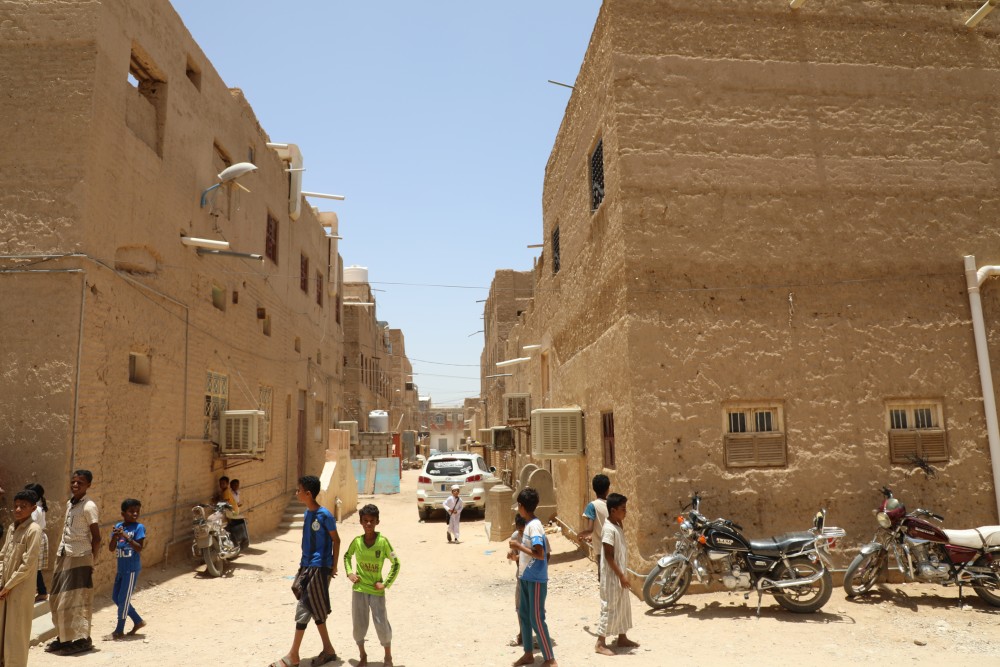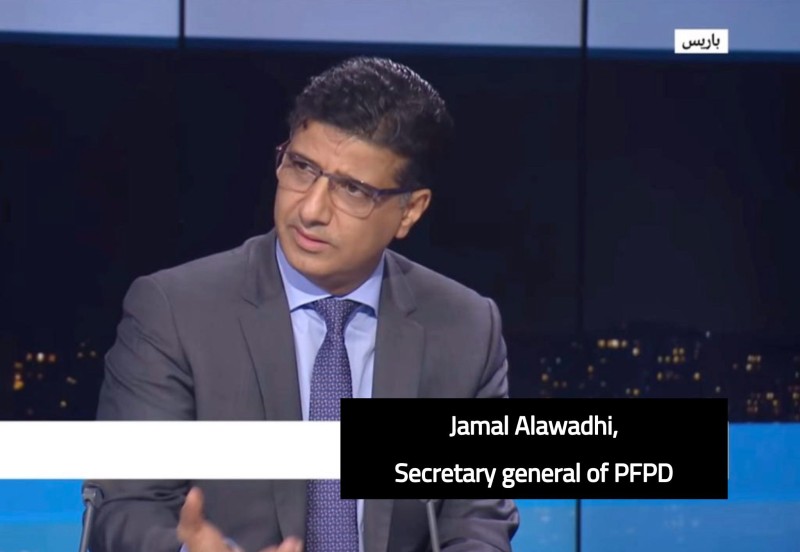UNDP : Towards peacebuilding in Yemen through local governance


In 1981, the United Nations General Assembly unanimously declared 21 September as International Day of Peace, underscoring the necessity of addressing the root causes of conflict and promoting peace. Reflecting on this year’s theme, “Cultivating a Culture of Peace,” it is important to highlight the crucial role state institutions play to co-create and sustain this culture of peace in Yemen, especially at the local level.
The scars of nearly a decade-long crisis linger in every aspect of life in Yemen. Over four million people have been internally displaced. Basic public infrastructure has been damaged or destroyed, leaving millions without access to clean water, healthcare, and education. Businesses and entrepreneurs, which provide jobs and livelihoods, must deal with damaged infrastructure, disruptions along crucial value chains, and instability in the banking sector, among many other problems. Central state institutions responsible for the provision of these basic services, public economic infrastructure and regulatory stability have fragmented, while financial resources have shrunk dramatically or disappeared altogether.
Initially, the impact of these shocks was mitigated by UN agencies with the support of the international community. But after a decade, this is no longer sustainable, not only because funding for humanitarian aid for Yemen is rapidly decreasing, but because it can negatively affect the capacity of state institutions to respond to the needs of their communities. This is a slippery slope, because when citizens lose trust and faith in institutions to provide basic services, institutions lose their legitimacy, and the social contract, upon which ultimately peace rests, unravels.
This significantly raises the stakes of investing in institutional capacity. It is not just about building good roads, ensuring everybody is connected to the public water network, and printing schoolbooks; it is also about creating the necessary thresholds for any future peace to be sustainable.
With these issues in mind, UNDP Yemen, with the support of the European Union, initiated the Strengthening Institutional and Economic Resilience in Yemen (SIERY) Project in 2020. This large project, which is implemented in nine governorates (45 districts in total) spread throughout the country, not only strengthens the capacity of local authorities to respond to the direct needs of local communities and private sector, but also its ability to function as a neutral and inclusive platform on which to discuss and decide on competing or conflicting priorities.
Through this project, over 550 personnel from targeted district and governorate authorities received training on the public expenditure management cycle. This training resulted in local development plans, formulated together with local communities, including women and youth groups, Internally Displaced Persons, and other important community sub-sections, ensuring that the needs of all community members are addressed. These same groups collaborated to identify public infrastructure priorities, ranging from schools, surgery rooms, specialized health clinics, roads, sewage systems, water works, waste facilities, energy provision, and more, of which over 125 were realized with grants made available by the project.
"The support we received through the SIERY Project empowered us to develop effective strategies and prioritize and allocate resources more efficiently to provide services that are better aligned with citizens’ needs. This has enhanced the community's trust in local authorities, contributing to reduced local-level conflicts and increased engagement,” says Awas Ahmed Al-Zahri - Director General of Khor Maksar District and Head of the Local Council.
The SIERY Project focuses on strengthening the individual and organizational capacities of local authorities and the local private sector towards local economic development. Promising growth sectors were identified, and now local authorities and the private sector are working together to revive and develop them, including through targeted entrepreneurship training for the construction and refurbishment of critical market infrastructure.
The crisis has also severely impacted Yemen's critical maritime infrastructure, such as the Port of Aden. Damage to Sheds One and Two rendered them non-functional and hindered the flow of humanitarian and commercial goods.
Through the Improvement of Efficiency in the Port of Aden Project—a collaborative effort between UNDP, the Government of Japan, and the Government of Yemen—these sheds have been fully rehabilitated. The port now operates more efficiently, increased handling capacity, and with lowered port charges, easing the economic burden on Yemeni consumers. The project is now entering a second phase, which includes the procurement of maintenance workshops to ensure efficiency and safety at the port.
In parallel, the ongoing conflict has led to massive population movements, placing additional pressure on urban infrastructure. Internally Displaced Persons (IDPs) remain among the most disproportionately affected by hindered access to basic services. Addressing this requires durable solutions. UNDP and other UN organizations are supporting the Government of Yemen to build local capacity to address internal displacement through the Area-Based Development Solutions to Displacement Project.
“It is crucial to develop Durable Solutions Plans for IDPs in collaboration with local authorities to ensure they are practical and effective,” emphasized Brigadier Ahmed Al-Turki, Governor of Lahj, during a workshop hosted by the project.
State institutions’ limited infrastructure and capacity have also negatively affected judicial ecosystems and corroded community safety and access to inclusive justice services. This erosion could abate public trust in the rule of law, foster resentment towards state institutions and perpetuate the cycles of inequality and instability.
To counter these risks, the Promoting Inclusive Access to Justice in Yemen (PIAJY) Project, generously funded by the Government of the Netherlands, is supporting both formal and informal justice institutions by narrowing justice gaps and fostering a sense of fairness and legitimacy within society. The PIAJY Project’s support has increased access to justice for over half a million Yemenis, reduced the number of unsentenced detainees by 11 percent, and improving prison conditions, especially for women detainees.
“I successfully resolved many community and personal disputes, including cases related to alimony, marriage annulment, and child visitation,” says Ahlam Yaseen, paralegal and one of the participants at a PIAJY capacity building workshop. “I also play a role in resolving land and housing disputes, which are newly emerging cases in our society.”
Effective peacebuilding also requires strengthening local-level conflict resolution capacities. Leveraging Civil Society Organizations’ (CSOs) expertise is crucial in driving this effort.
Under the PIAJY Project, local authorities and Afaq Shababia, a local CSO, have established six Community Mediation Committees (CMCs) in various districts in Aden. These committees aim to reduce the pressure on detention centers and promote the peaceful resolution of non-criminal cases within society.
"We mobilize community resources and work alongside the formal justice system to settle conflicts and strengthen the social fabric in Aden," says one of the CMC members who works on debt cases.
Further supporting local initiatives, the UN Peace Support Facility, funded by the European Union, Germany, and Norway, has launched a Small Grant Mechanism (SGM) to support 12 Civil Society Organization initiatives addressing local challenges. One such initiative, led by the SOS Foundation, focuses on countering misinformation and raising awareness about the importance of inclusive peace processes through capacity building and advocacy activities. This work targets local organizations, community committee members, and representatives from women and youth networks, who are often excluded from peace processes.
“I feel more empowered to raise awareness on the role women play in peacebuilding and positively influencing their communities," said Ghada, the coordinator of the Sixth Women's Summit at one of the trainings held by SOS Foundation, one of the participating CSOs in the Small Grant Mechanism in Aden.
Hind, a young member of the CMC and a participant at the training, explains, "The skills that we acquired through these training will help us resolve conflict within our communities, contribute to peacebuilding efforts, and support our decision-making."
Despite significant challenges, ongoing efforts in Yemen to reinforce governance, support displaced populations, and promote community-based peacebuilding, offer a promising way forward. Continued investment in these areas and a focus on inclusivity will be essential for Yemen to progress toward lasting peace and stability.

By Jamal Al-Awadhi Paris- Over the past few days, certain parties have launched a highly charged political and media d…

Aden – Malaysia and Algeria have reiterated their firm positions in support of Yemen’s unity, sovereignty, and territorial integrity, w…

The Arab League, the Muslim World League, and several Arab and Islamic countries have called for an immediate halt to military escalation in Yemen,…